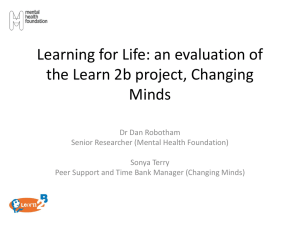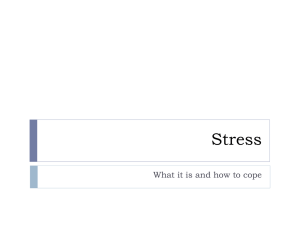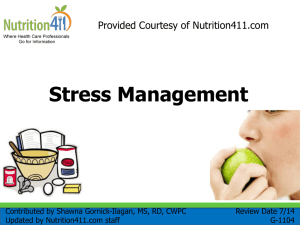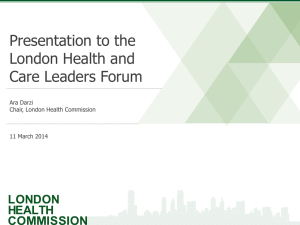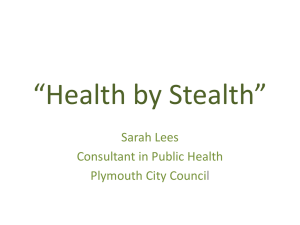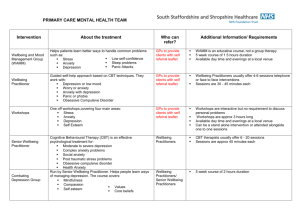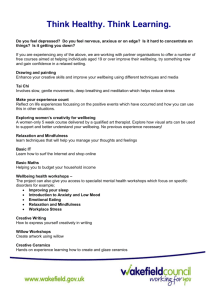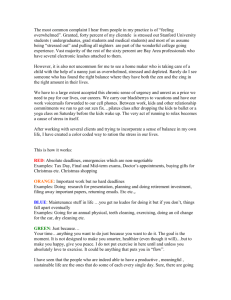staff room poster (docx
advertisement
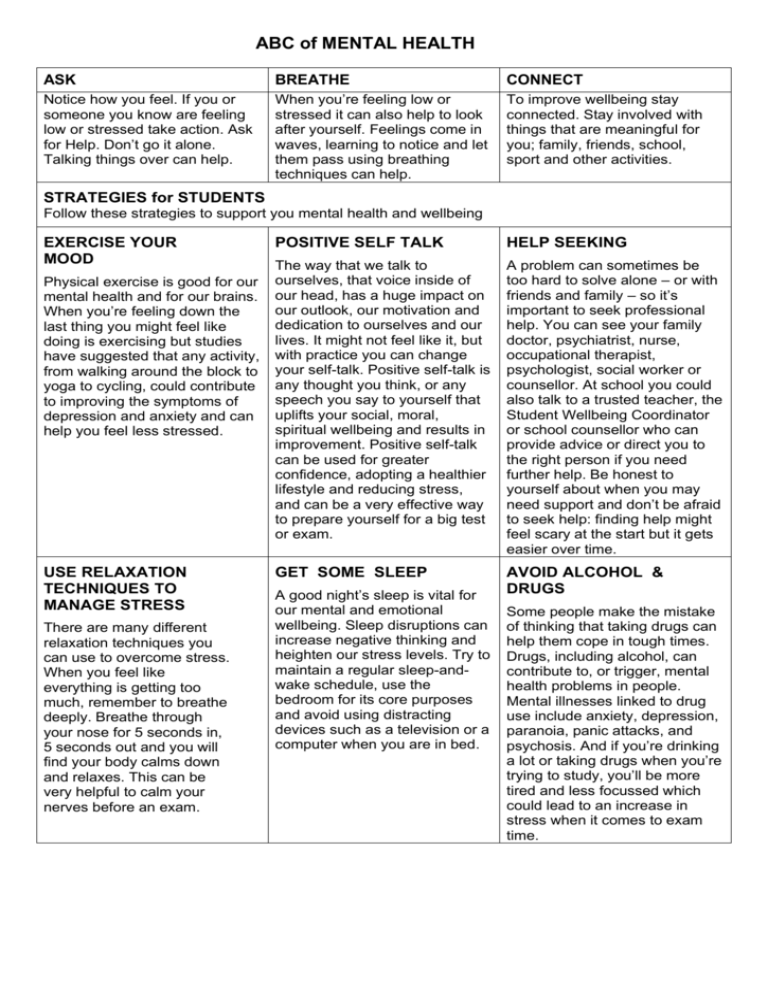
ABC of MENTAL HEALTH ASK BREATHE CONNECT Notice how you feel. If you or someone you know are feeling low or stressed take action. Ask for Help. Don’t go it alone. Talking things over can help. When you’re feeling low or stressed it can also help to look after yourself. Feelings come in waves, learning to notice and let them pass using breathing techniques can help. To improve wellbeing stay connected. Stay involved with things that are meaningful for you; family, friends, school, sport and other activities. STRATEGIES for STUDENTS Follow these strategies to support you mental health and wellbeing EXERCISE YOUR MOOD Physical exercise is good for our mental health and for our brains. When you’re feeling down the last thing you might feel like doing is exercising but studies have suggested that any activity, from walking around the block to yoga to cycling, could contribute to improving the symptoms of depression and anxiety and can help you feel less stressed. USE RELAXATION TECHNIQUES TO MANAGE STRESS There are many different relaxation techniques you can use to overcome stress. When you feel like everything is getting too much, remember to breathe deeply. Breathe through your nose for 5 seconds in, 5 seconds out and you will find your body calms down and relaxes. This can be very helpful to calm your nerves before an exam. POSITIVE SELF TALK HELP SEEKING The way that we talk to ourselves, that voice inside of our head, has a huge impact on our outlook, our motivation and dedication to ourselves and our lives. It might not feel like it, but with practice you can change your self-talk. Positive self-talk is any thought you think, or any speech you say to yourself that uplifts your social, moral, spiritual wellbeing and results in improvement. Positive self-talk can be used for greater confidence, adopting a healthier lifestyle and reducing stress, and can be a very effective way to prepare yourself for a big test or exam. A problem can sometimes be too hard to solve alone – or with friends and family – so it’s important to seek professional help. You can see your family doctor, psychiatrist, nurse, occupational therapist, psychologist, social worker or counsellor. At school you could also talk to a trusted teacher, the Student Wellbeing Coordinator or school counsellor who can provide advice or direct you to the right person if you need further help. Be honest to yourself about when you may need support and don’t be afraid to seek help: finding help might feel scary at the start but it gets easier over time. GET SOME SLEEP AVOID ALCOHOL & DRUGS A good night’s sleep is vital for our mental and emotional wellbeing. Sleep disruptions can increase negative thinking and heighten our stress levels. Try to maintain a regular sleep-andwake schedule, use the bedroom for its core purposes and avoid using distracting devices such as a television or a computer when you are in bed. Some people make the mistake of thinking that taking drugs can help them cope in tough times. Drugs, including alcohol, can contribute to, or trigger, mental health problems in people. Mental illnesses linked to drug use include anxiety, depression, paranoia, panic attacks, and psychosis. And if you’re drinking a lot or taking drugs when you’re trying to study, you’ll be more tired and less focussed which could lead to an increase in stress when it comes to exam time. EATING TAKE TIME TO STUDY CONNECT WITH OTHERS Some studies suggest that what you eat affects your mood. A good balanced diet will make sure you have all the essential nutrients needed for your brain to function well, helping to keep you both physically and mentally healthy. You might have noticed that your mood can affect your appetite and food intake. Maintaining a healthy diet and regular food intake can be a way to look after yourself even at times you don’t feel like it. It’s easy to get tired when you’re studying a lot, but eating junk and drinking caffeine will actually make it harder to concentrate and more difficult to get good sleep. The exam period can be a particularly stressful time, but setting time aside to make sure you fit your study in can help reduce your stress and anxiety. To reduce exam pressure, think about doing things like: plan to have a good balance between social life and study time; plan rewards for after exams; study actively and do past exam papers; develop and stick to a study routine at home. We are social creatures, and our social relationships are really important to our general wellbeing. It is okay to take time out for yourself, but don’t stay shut in. Keep your social relations strong when you are feeling stressed out, overwhelmed or depressed, as your friends and family might really be able to help you through these times. If you are in need of help, visit headspace.org.au Log on to eheadspace.org.au for online support and counselling
